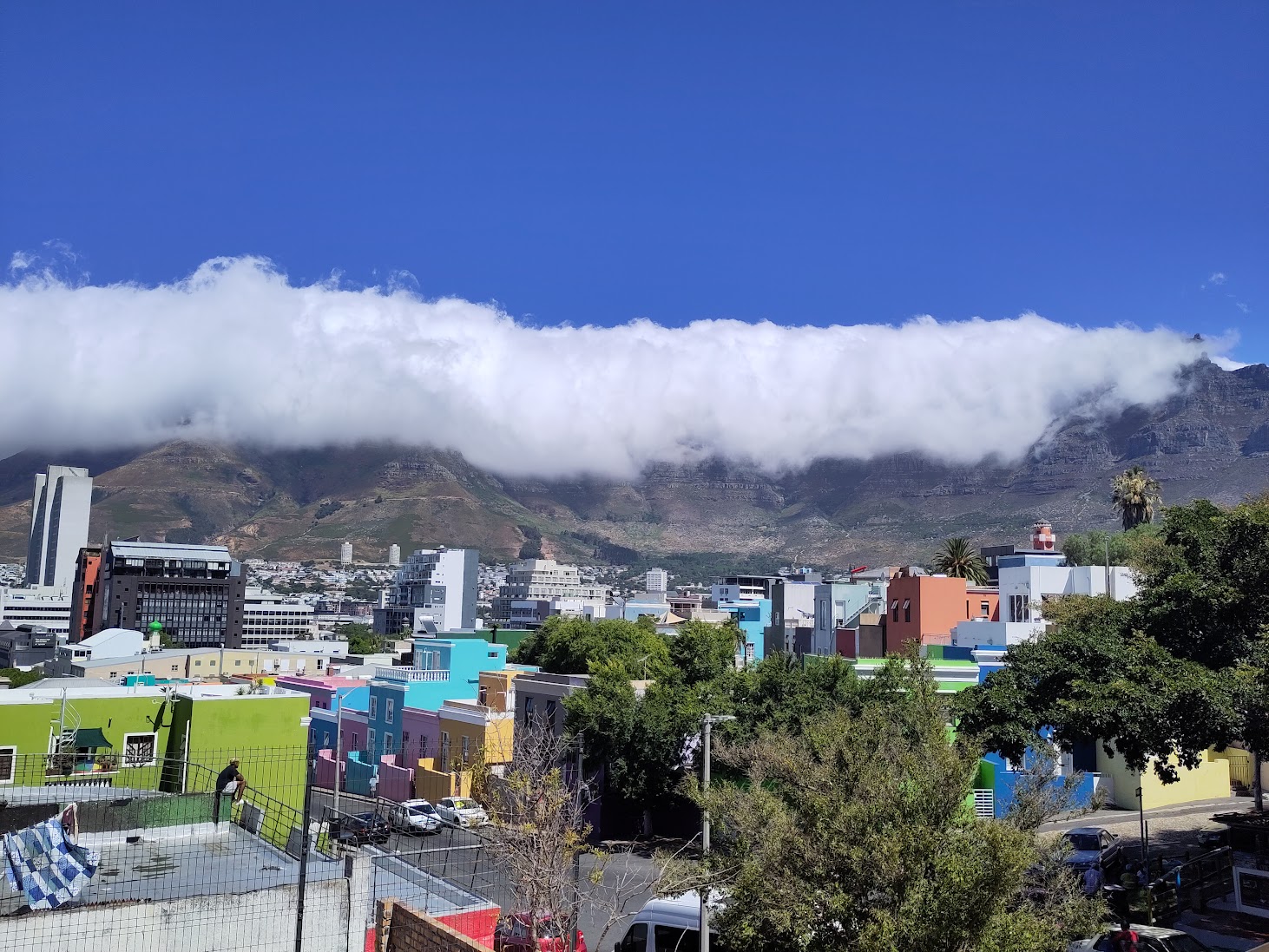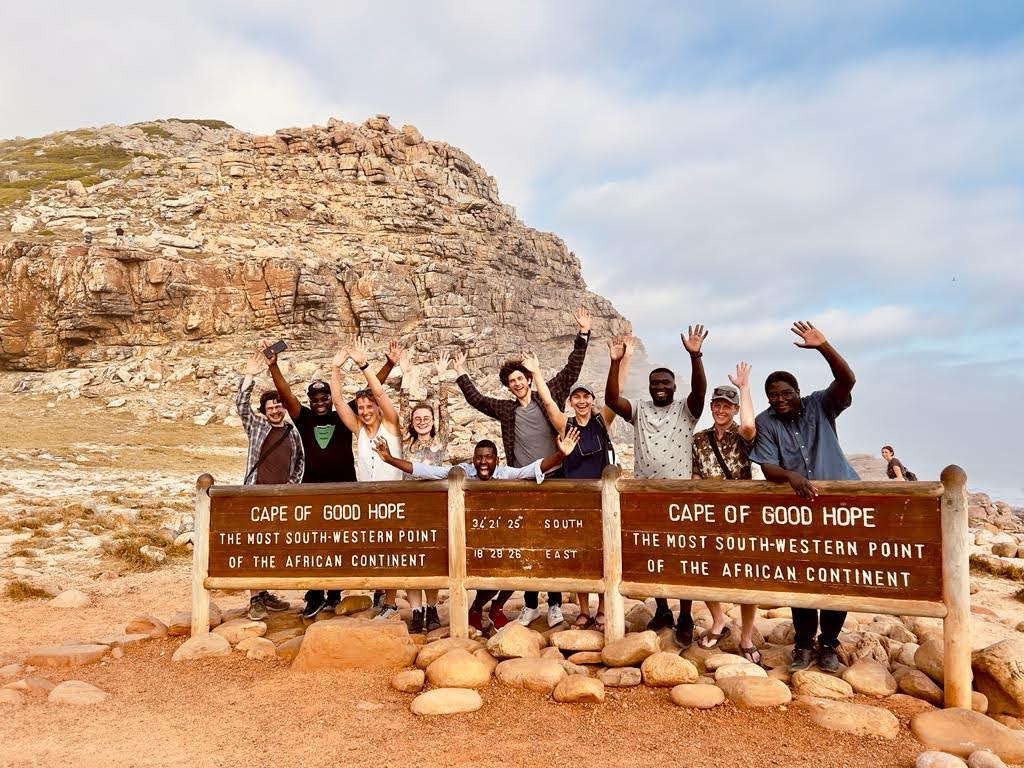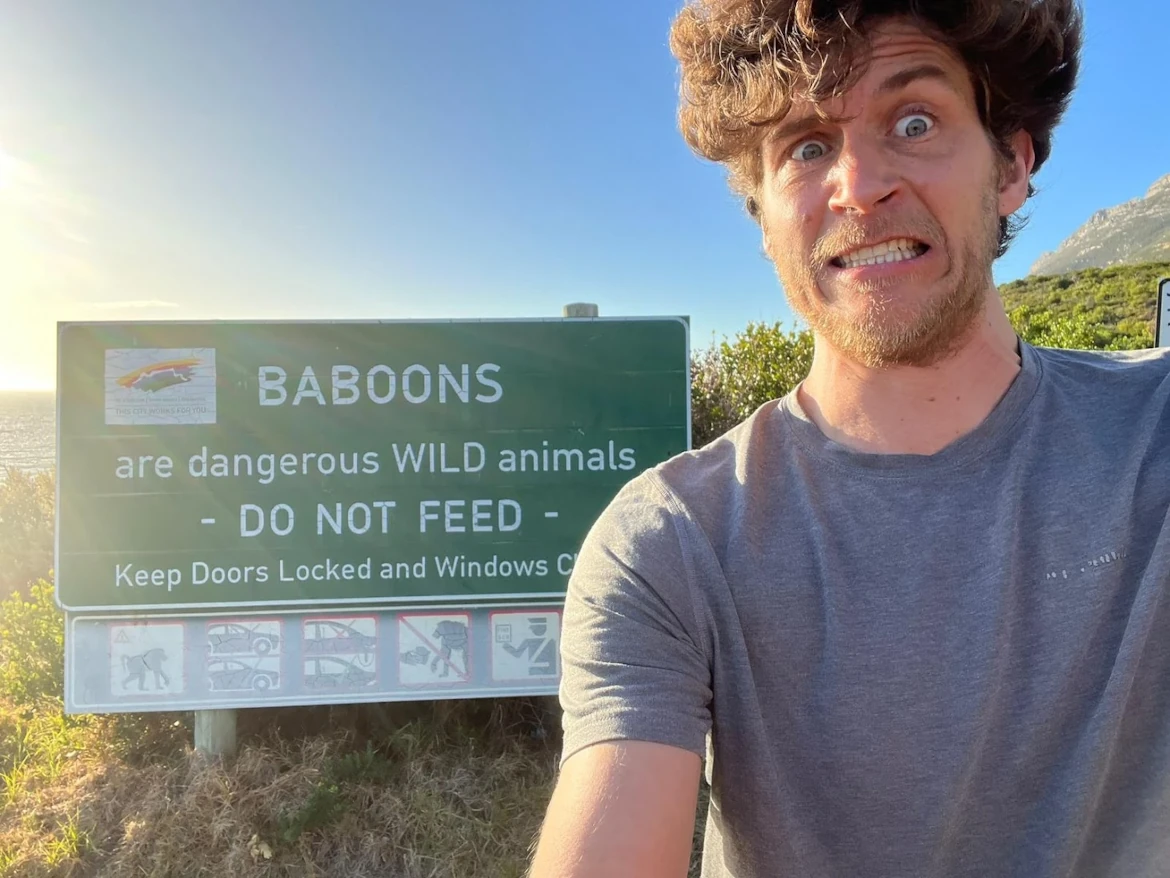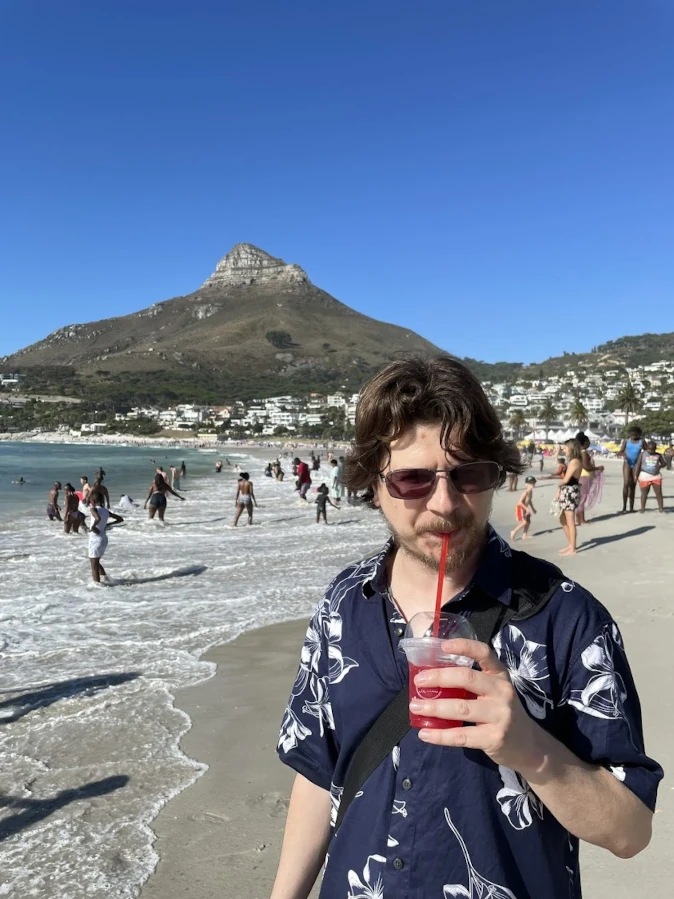I am in the wrong hemisphere.
Six months ago, I joined OpenFn, intrigued by the mission to automate workflows in critical, but often neglected, humanitarian processes. For personal reasons, I didn’t really plan on being here long - but I thought I could help out for a while.
"Hey," says CEO Taylor Downs, one winter’s morning. "Do you want to come to Cape Town with us?"

I am not well traveled - I’ve never left Europe, let alone stepped foot on African soil. So I enthusiastically agree.
And I’m not the only one. Between us, we have traveled 40,000 miles to be in District Six, Cape Town - from London, Dakar, Arusha, Riga, Nairobi. It has taken us over 150 hours to get here.
Right now we are gathered around this table, in this hot little room, scribbling our truths onto this oversized piece of paper. We are, in our own little way, trying to make the world a better place.
Suddenly the fan stops, the lights go out, the projector goes dark.
Load shedding just struck.
But the conversation doesn’t even waver. Eyes briefly flick to the light fixtures, but we remain focused on refining our mission, putting an edge on our purpose, comparing visions on how, where and when we can make a difference.
We have traveled all this way to figure out how to best work together.
If we don’t get this right, we can’t achieve our mission. We are digital nomads, spread throughout Europe, Africa and North America. We rarely meet in physical space. Technology enables us to collaborate, but it brings its fair share of challenges too.
"Sitting down all day is dangerous," says Taylor. "We have to make this count."
It has taken weeks of preparation and worry to get here. I’ve been arranging travel, visas, domestic stuff, vaccinations. Since covid broke out, for three years now, my partner and I have worked from home, in the same small flat, always together. I fight back tears as we kiss goodbye on the doorstep, and start my long journey.

It's an overnight flight. I do not sleep. I hit Cape Town tarmac at 7am, scrabble for a data connection at 8am, collapse into Stu's car at 9am. I watch the city, the townships, the shanty villages, the mountains; a new world drifts silently past the window. The environment is beautiful, the poverty is heartbreaking.
In Simon’s Town, as I shake hands with my colleagues for the first time, we learn things about each other that months of video conferencing could never reveal.
By the end of the first day I am already exhausted, overwhelmed, burned out from adrenaline.
Over the weekend, we walk, we swim, we kick a football, we drive, we eat, we immerse ourselves in penguins (did you know Cape town has penguins?).
At an artistic retreat in Scarborough, we sculpt from clay, eyes closed, hands busy, minds focused. A safe space, our guide tells us nervously, unsure how to break an ice that has suddenly formed in 30 degree heat.
It is at the same time austere and liberating, creative and claustrophobic, individual and collective. We swap chairs and work on each other’s sculptures - nervously, at first, unwilling to do harm, but soon embracing the opportunity to co-imagine, to co-create.
In the end it is a joy from which, I think, we all emerged changed.
“It was a little too woo-woo for me”, says Taylor, tears still drying in his eyes. It is the most reassuring thing I have heard in days.

Later, as the sun sets behind us, on a Cape Town beach, we share our stories. Between us we barely have a single thing in common - be it language, religion, education, gender, background, hobbies. But maybe, it emerges, there is one thing - just one slender thread - which connects us after all: a determination to fight inequality.
We are not righteous. We all know we can’t save the world. We are not in the business of toppling regimes, redistributing wealth, healing the sick. We do not bear torches.
But we do have a contribution to make. Automation is our thing. We believe that we can improve critical business processes in the “developing world” - the places that big tech doesn’t care about - by taking away tedium, building trust and transparency, and reducing errors.
In the office, unfazed by power cuts, we explore working practices, discuss cultural differences, deepen our respect.
We learn how to talk about and discuss our data integration technology - something so abstract that often even highly technical people don’t get it. We learn how our technology helps the people Silicon Valley overlooks. We share stories, explore ideas, learn about ourselves and the business.
On the penultimate day, I find myself overwhelmed with grief. Soon we depart to different corners of the world, vanish behind our screens. Yes, I miss my big monitor, my safe space, my family, my drinks cabinet, my PlayStation, my wok. But I know that this special, sacred shared time is ending - and later I will miss the company of my colleagues more than the comforts of home.
Somewhere during this long pandemic, between fleeing an unsafe office and thriving in isolation, I Iost something. I forgot something important, something about connecting to people, something about society, the world, my place in it.
In Cape Town, and with the humans of Open Function, I found it once more.
